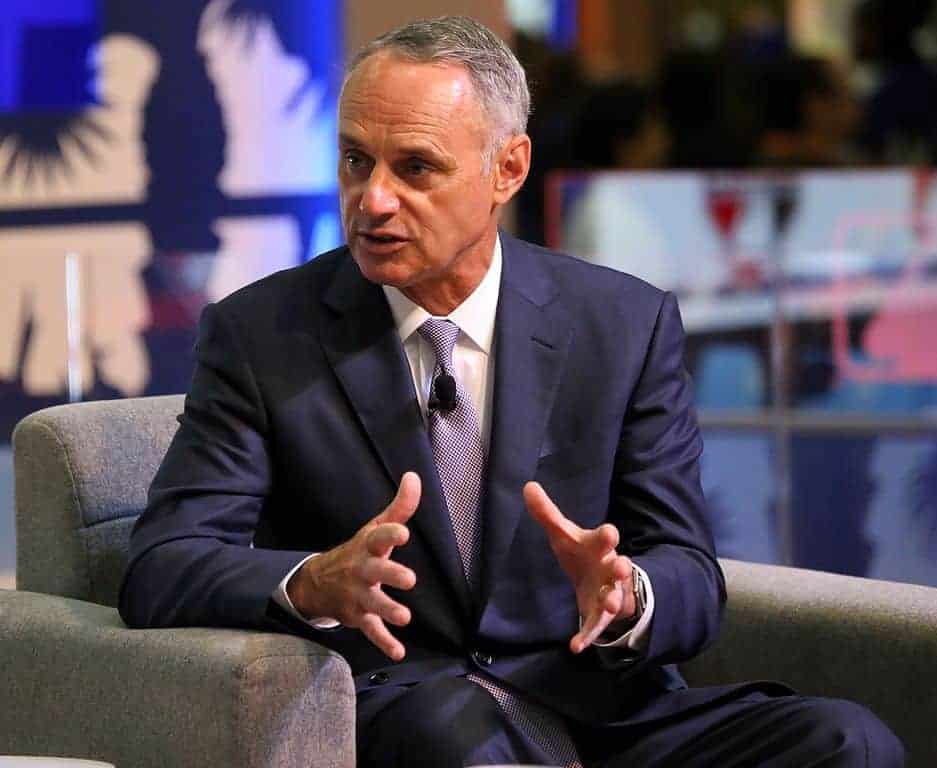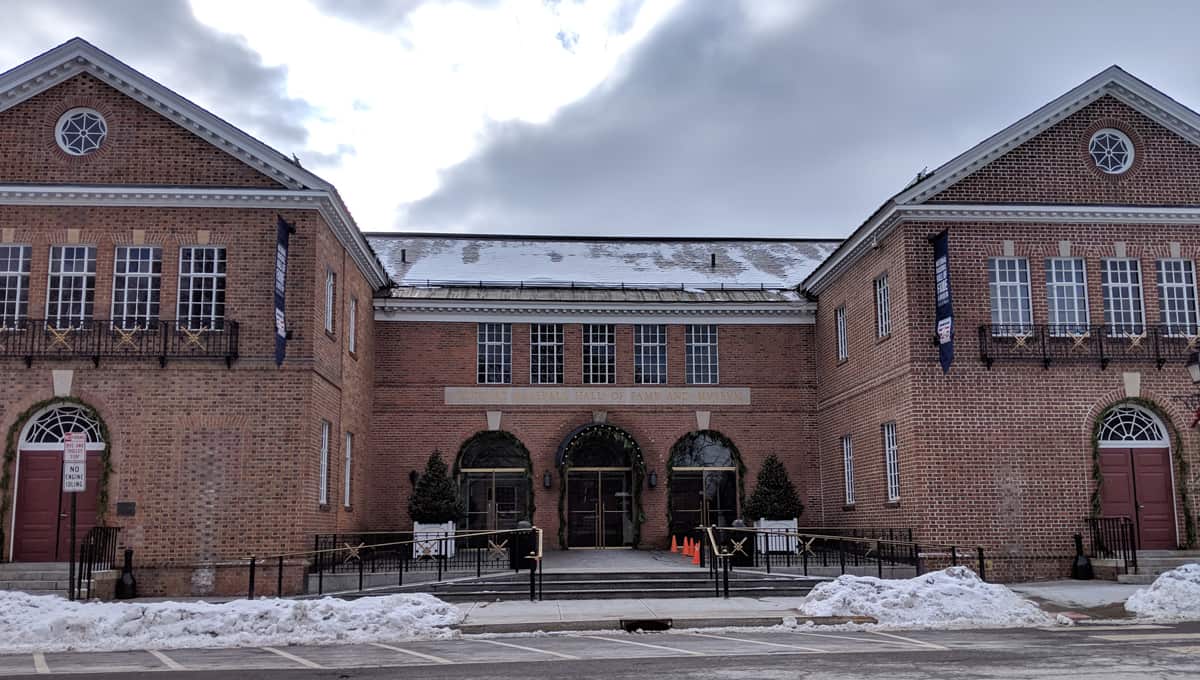When we last left the topic of work stoppages, Major League Baseball and its players association had agreed on a number of tweaks to the game with the potential of attacking the seismic shifts in the game's economics well before the expiration of the collective bargaining agreement.
Since then, The Athletic confirmed the existence of an actual title belt that teams awarded during the owners and general managers meetings to the team that fared the best during the salary arbitration process.
The Belt changes hands shortly after season’s end, in a crowded conference room at a luxury resort, where delegates from every MLB team have been summoned for a symposium on arbitration. For three hours, they will work together at the direction of the league to set recommendations, which teams will use in negotiations with their players. It’s a thankless job. So before the meeting adjourns, they’ll celebrate an unsung hero in this battle over dollars. The ceremony ends with the presentation of a replica championship belt, awarded by the league to the team that did most to “achieve the goals set by the industry.” In other words: The team that did the most to keep salaries down in arbitration.
The reporter, Marc Carig, goes on to talk to players and agents about the shifting dynamic of the arbitration system, in which teams are taking a harder line against players with firm file-and-trial dates, and colluding (which is permissible in arbitration, as opposed to free agency) to present a more united front.
Throw in Rob Manfred's unsympathetic comments about free agency -- and callous comments about Atlantic League pitchers used as guinea pigs -- and it seems like they're daring the union to fight the league.
To that end, Jeff Passan attacked the game's delicate situation from the union's side -- its faults, its vulnerabilities, but also its voice. The article is anchored around Manny Machado and Eric Hosmer having dinner with Padres owner Ron Fowler in order to lobby for Fernando Tatis Jr. breaking camp with the club on Opening Day.
This is Major League Baseball in 2019, as the sport celebrates its 150th anniversary. It is players lobbying owners to win. It is two of the 25 best players in an organization making the team -- and that registering as a surprise. It is frugality in free agency begetting, oddly enough, a deluge of spending. It is the faint sound of labor war drums and the heavy sound of an on-field product in transition. It is the confluence of these elements into a $10 billion-a-year business that teeters and wobbles and oscillates in search of balance -- and an identity to sell it to a new generation that still isn't sold.
The business is the game. The game is the business. And more than ever, for better or worse, they are conjoined.
This anecdote, as rare as it might be, gives Passan a little more hope than Carig with regards to players and owners acknowledging a common foe with the league's demographics issue. Taken in total, though, there will probably be steps forward and backward over the next two years as a new financial world gets more difficult to avoid.
Spare Parts
When Keith Law appeared on the Sox Machine Podcast, I informed him about my highly aggressive Bryce Bush ranking, and he said he'd heard encouraging reports but didn't have the intel to paint a clear-enough picture to put a number on him. That said, he got a first-hand look in Arizona, and here's what he saw:
Bush, from Birmingham, Michigan, is an athletic kid with plus bat speed and some now power, boasting a very good swing with strong extension to get that extra carry. I only saw three at bats, but in those his modus operandi seemed to be to attack something early in the count, which will work now but may require some adjustments in full-season ball. I know Nick Hostetler, the White Sox' scouting director, felt like Bush might have been a fifth-round talent or better, and based on a quick look I would have to agree. If Bush grows up in Florida or southern California, he's on everyone's radar in his draft year.
If you're wondering about the ball that dropped between Eloy Jiménez and Tim Anderson on Saturday, apparently Jiménez needs to speak up:
Jimenez is very soft-spoken and needs to be more forceful in the outfield.
“I tried to call it,” he said. “I said I don’t want to hurt him or me. When he tried to make (the catch), I said OK. When the ball dropped, I wasn’t feeling good.”
As somebody whose voice registers in the same frequency as fluorescent lighting and disappears within 10 feet regardless of volume, I can sympathize.
On a lighter note, here's Ben Lindbergh showing in a variety of ways just how talented today's players are, and how even the 30somethings getting hammered in free agency can admit, grudgingly or not, just how gifted this burgeoning generation is.





